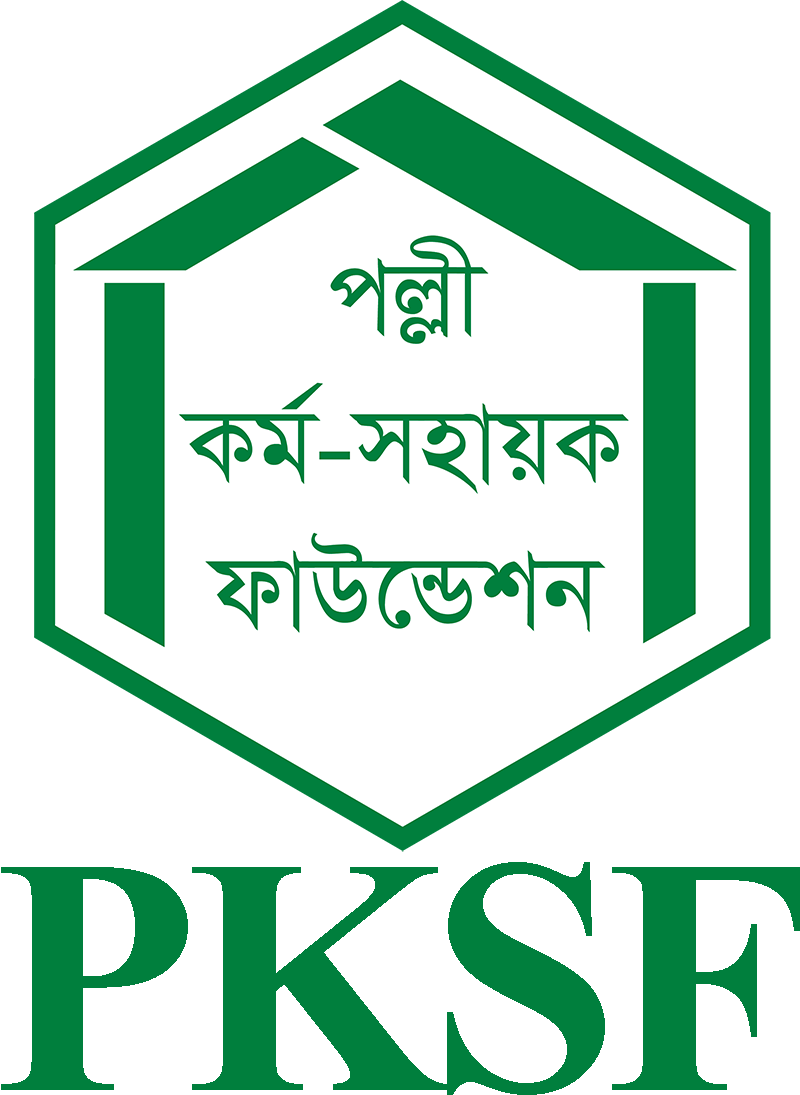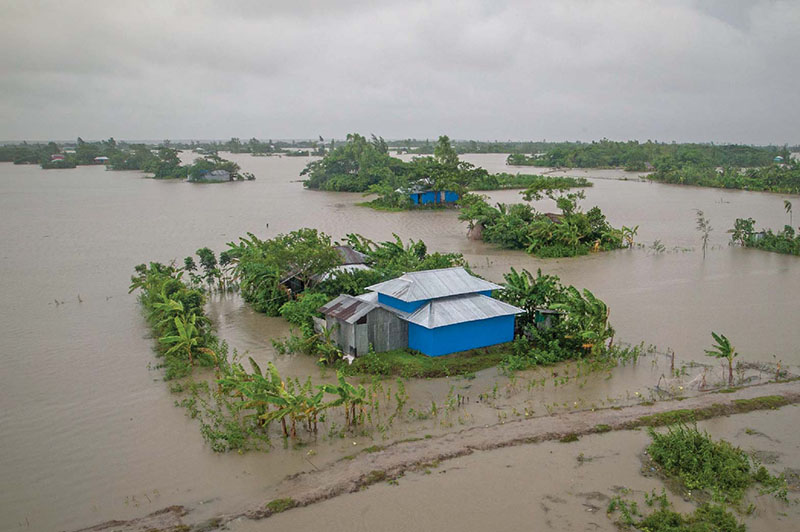
Bangladesh Climate Change Trust Fund (BCCTF)
Bangladesh is one of the most vulnerable countries facing climate change and its adverse effect on environment & livelihood. Climate change possesses a serious threat to Bangladesh’s goal to accelerate economic growth, substantially eradicate poverty and become a middle-income country by 2021. Recognizing the uncertainties and inadequacies of international adaptation finance from both multilateral and bilateral sources, the Government of Bangladesh decided to establish the Bangladesh Climate Change Trust Fund (BCCTF) based on revenue from the national budget, within a legal mandate by the Climate Change Trust Act passed in the Parliament in 2010. “Bangladesh Climate change Trust Fund (BCCTF)” through management across the public and private sector is operating different type of activities to tackle the risks and adverse effects of climate changes.
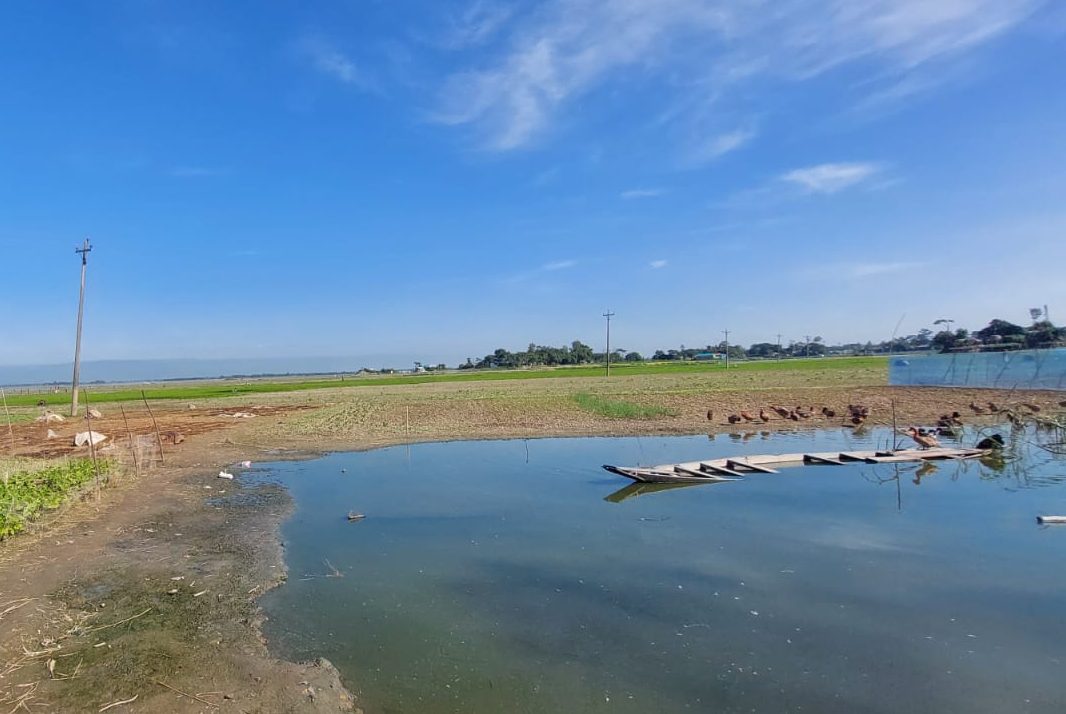
Climate-resilient Haor Project
Bangladesh is one of the most vulnerable countries to adverse impact of climate change. Flash flood affected haor basin is one of four climate hotspot areas of the country. Wave erosion due to the intense flash flood is one of the major threats to the haor settlements. Flash flood waves (locally called Afal) inundate the common area destroying harvests of the households living in the hati.Taking into account this vulnerability of haor residents, PKSF is implementing a project titled ‘Climate-resilient Infrastructure for Sustainable Community Life in the Haor Region of Bangladesh’ financed by IKI Small Grants Funding Scheme of German Federal Ministry for the Environment. The project is being implemented at haor area of Sunamgonj district of Bangladesh with a view to protect the villages (Hati) from wave erosion of Afal. German development organization Deutsche Gesellschaft für Internationale Zusammenarbeit (giz) Bangladesh office is looking after the project. The grant agreement between PKSF and giz was executed on 14 February 2023 and the project was launched since 1 March 2023.
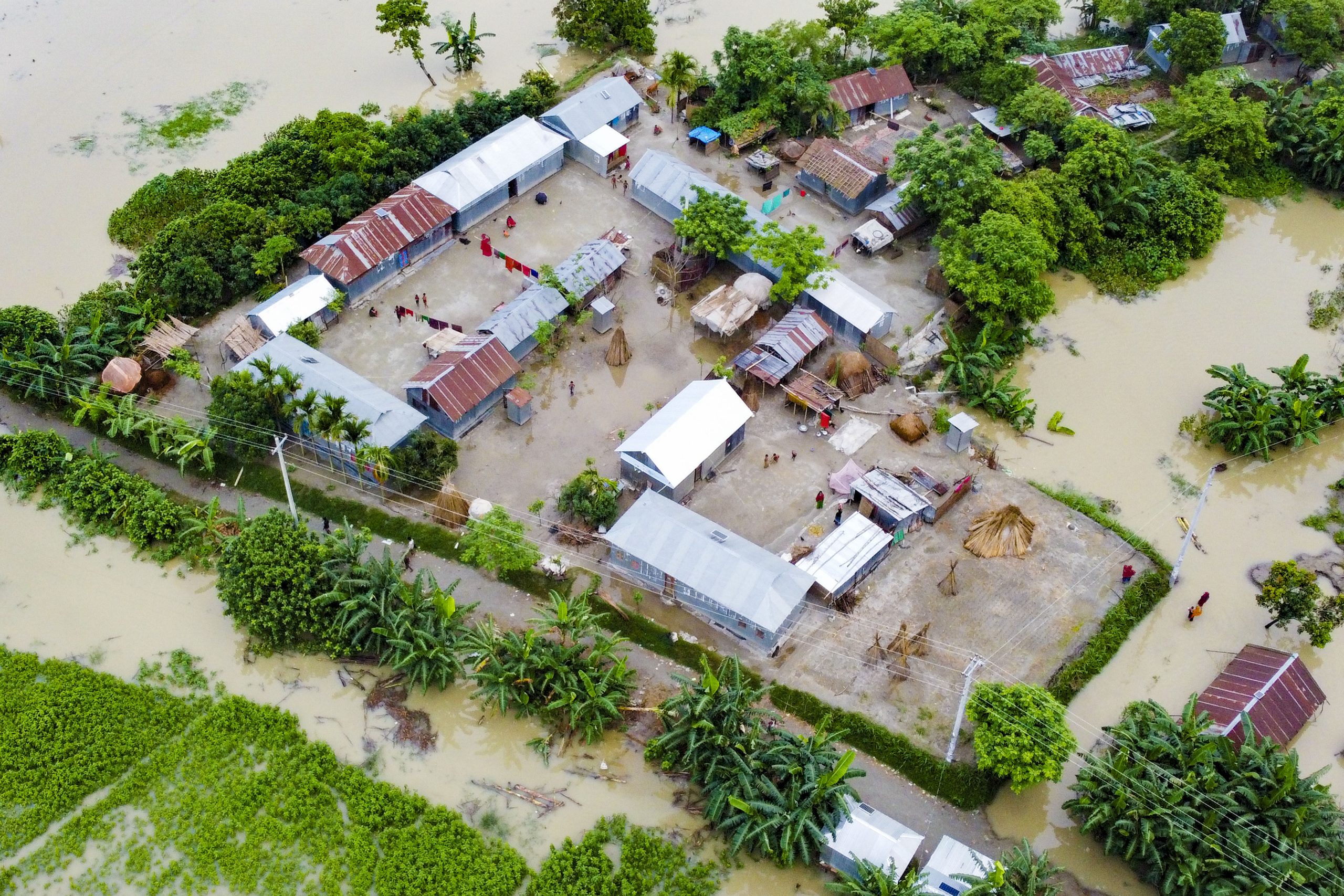
Extended Community Climate Change Project- Flood (ECCCP- Flood)
The impacts of climate change in Bangladesh are becoming increasingly evident. It has already been reflected in the natural disasters like floods, flash floods, salinity ingress, tidal surge, drought, etc. The frequency and the intensity of these disasters are ever increasing. The poor are at the highest risk. Women and children will be affected worse than any other groups in the community due to their low capacity to cope with the shocks. The poor and marginalized communities living in the flood-prone areas generally depend on agriculture for their livelihood which is highly sensitive to climate change. These climate-induced disasters affect habitation, availability of water, and sanitation systems. ECCCP-Flood aims to provide climate-resilient shelters, livelihood, drinking water sources, and sanitation systems for these people.
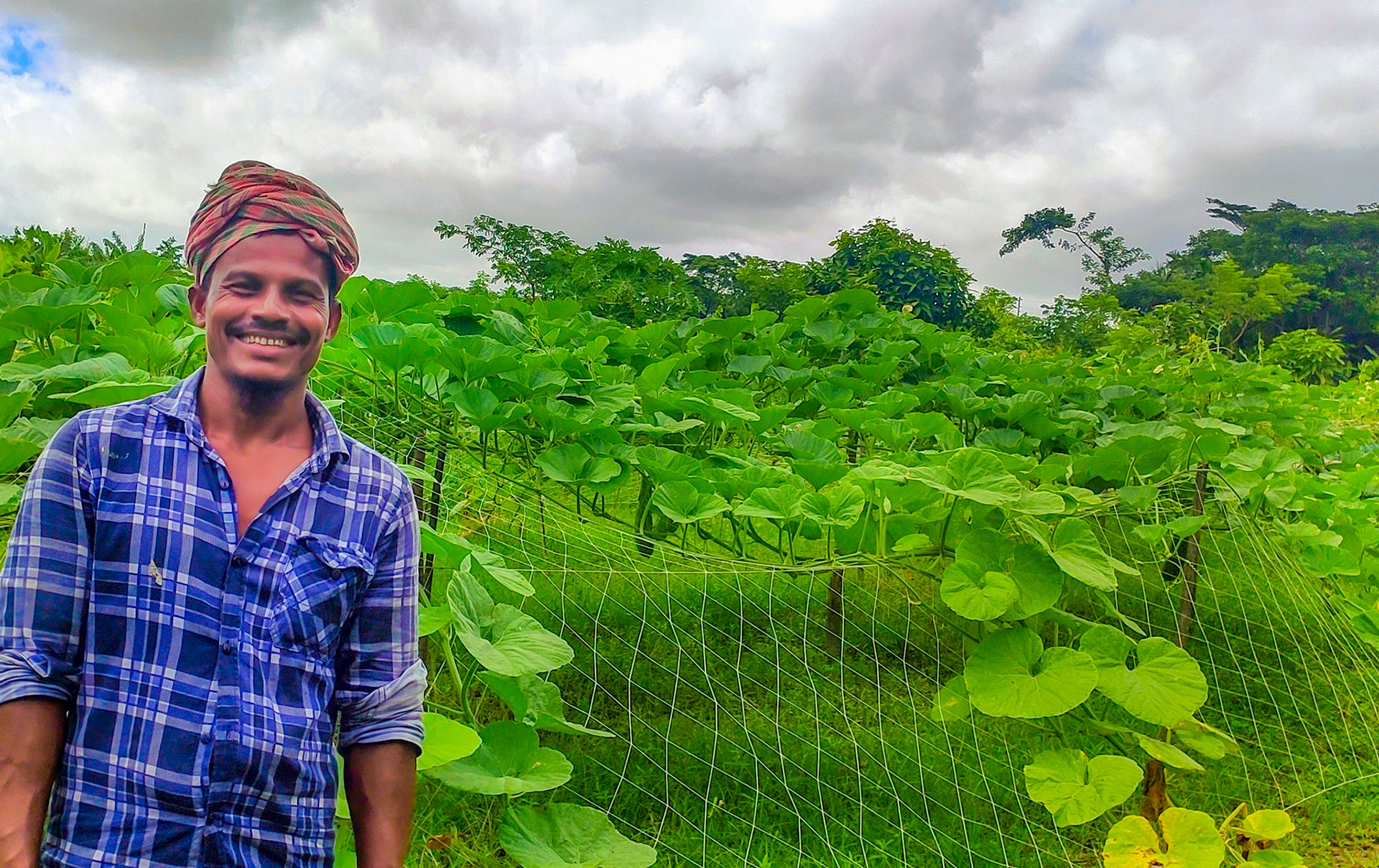
Developing Inclusive Insurance Sector Project (DIISP)
Palli Karma-Sahayak Foundation (PKSF) successfully implemented a pilot microinsurance project titled ‘Developing Inclusive Insurance Sector Project (DIISP)’ with the financial grant support of the Japan Fund for Poverty Reduction (JFPR) under the cooperation of the Asian Development Bank (ADB). The project implementation was started in January 2010 which has been successfully completed in December 2014. The physical completion date of the project was December 31, 2014. The objective of the pilot project was to protect the livelihoods of poor households, especially women, from risks such as accidents, illness or natural disasters—to secure their welfare and assets through the development of low-cost microinsurance services. Key innovative aspects of the project were addressing the needs of the poor through reducing vulnerability, building protection against shocks by developing affordable insurance services and expanding insurance service outreach through the network of MFIs in a sustainable approach.
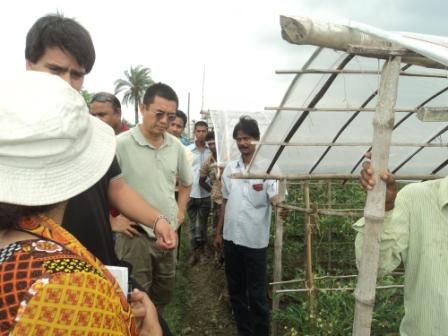
Finance for Enterprise Development and Employment Creation (FEDEC)
Palli Karma-Sahayak Foundation (PKSF) successfully completed implementation of the Finance for Enterprise Development and Employment Creation (FEDEC) project on 31st March 2014, jointly financed by PKSF and International Fund for Agricultural Development (IFAD). The project was launched in March 2008. The budget of the project was USD 57.8 million, in which IFAD finance was USD 35.0 million.
The overall goal of the project was to contribute to economic growth in order to increase employment opportunities and reduce poverty. This was to achieve through the immediate project objective of expanding existing and establishing new micro-enterprises. The project had three components: (i) Microfinance Services involving savings and credit services for micro-enterprises; (ii) Capacity Building; and (iii) Value Chain Development services to improve access to markets and build the capacity of small businesses.
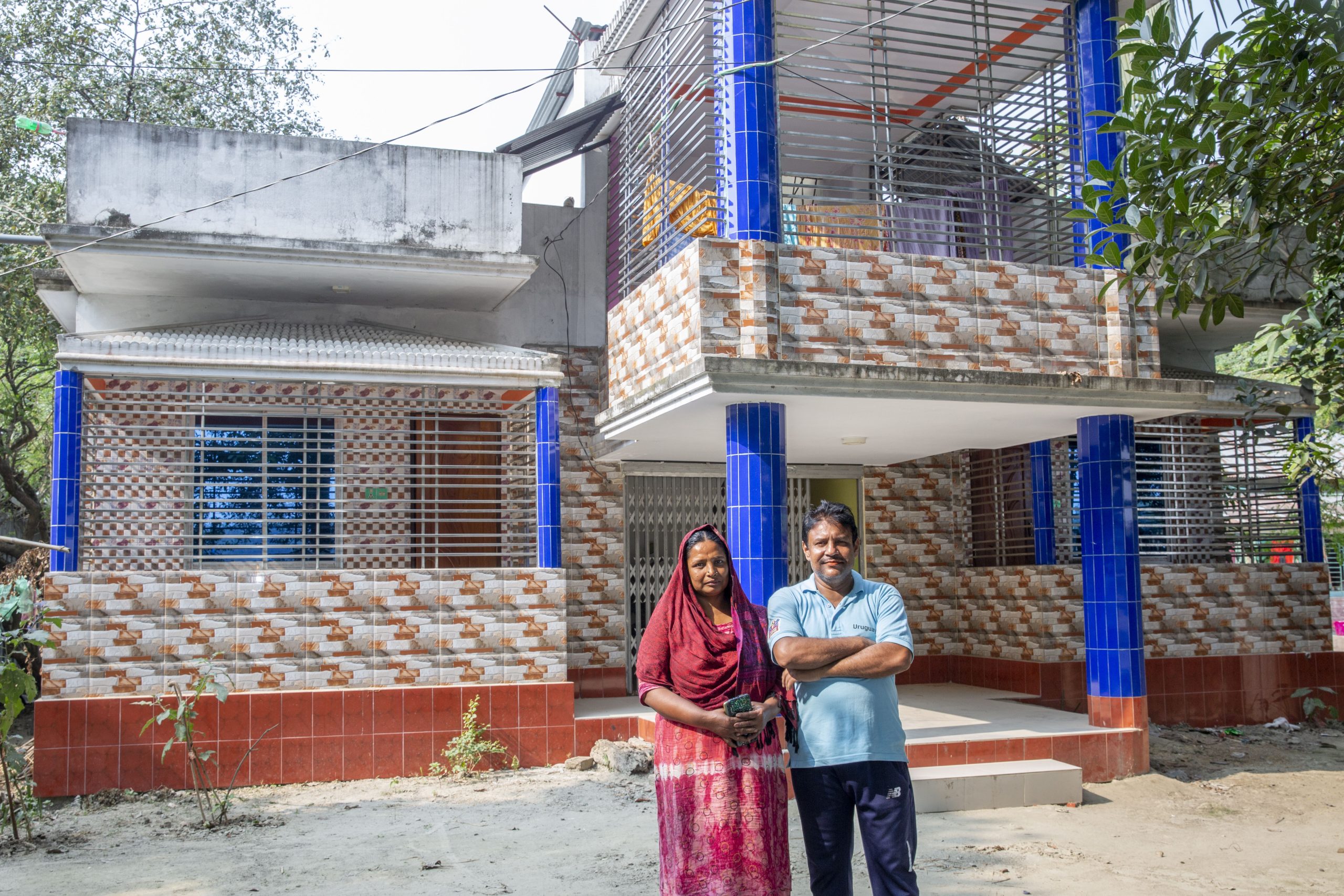
Low Income Community Housing Support Project (LICHSP)
Access of low income people to finance for housing is a perpetual challenge in every country. It is more difficult in the urban areas. Lack of land tenure security and the high initial investment are the big hurdles. For financial institutions, it’s a very difficult task because of the terms and conditions permissible in matters of lending. Longer loan terms and absence of appropriate guarantee mechanisms are the main obstacles. The conventional microfinance system offers very little scope for funding in housing which relates to conventional mortgages. However, Palli Karma-Sahayak Foundation (PKSF) is presently implementing a project titled ‘Low Income Community Housing Support Project (LICHSP)’ in line with its mandate of inclusive and appropriate financing for sustainable development of people.
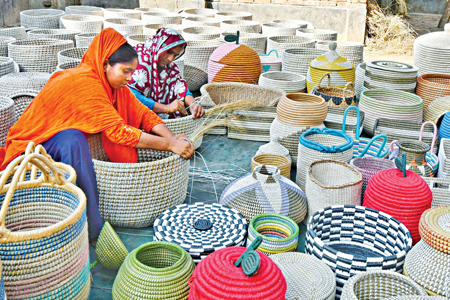
Microenterprise Development Project (MDP)
PKSF completed the implementation of ‘Microenterprise Development Project (MDP)’ with USD 50 million loan and USD 0.50 million technical assistance from Asian Development Bank (ADB) to support various microenterprises (MEs) with the objective of inclusive economic development and reduction of rural poverty. Launched on 01 January 2019, the MDP was completed on 31 March 2021 through 77 Partner Organizations (POs). On its closure, financial assistance of BDT 996 crore has been provided to 68,562 micro entrepreneurs of whom 83% are female. The microenterprises, with support from the project, created employment for 1.81 lac people of whom 40% are female. Environmental and social safeguard measures had been fully ensured for each of the microenterprises.
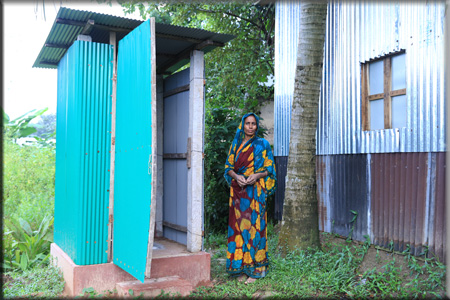
OBA Sanitation Microfinance Project
Bangladesh has made notable progress in reducing the practice of open defecation, from 34 percent in 1990 to just 1 percent of the national population in 2015. However, according to the report of the Joint Monitoring Program (JMP) 2015, the current prevalence of improved sanitation is 61 percent, mounting at only 1.1 percent annually. Good sanitation is vital for good health and for wealth creation as well. Hygienic latrines are considered the next generation of toilets, fully confining waste from both the user and the surrounding environment. Many households in the rural areas of Bangladesh don’t have sufficient cash in hand to upgrade sanitation systems, but can afford the cost if they are able to spread the cost over time.
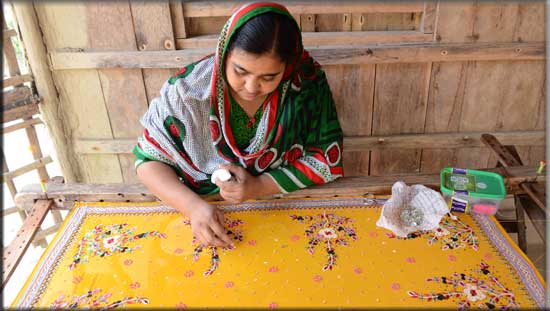
Promoting Financial Services for Poverty Reduction (PROSPER)
PKSF launched Programmed Initiatives for Monga Eradication (PRIME) in 2006 to address the distress of people affected by Monga and Monga-like situations. The programme was designed to be implemented in the north-western region of Bangladesh which faces acute hunger during the pre-harvest months of October-December. This period locally known as Monga is characterized by minimal access to food and a dearth of earning opportunities for the landless and wage labourers in the region. From 2010, PRIME started working in the natural disaster-prone south-western region which were earlier hit by cyclone and other calamities and had been suffering from water salinity and acute poverty. The primary focus of PRIME is to create wage-employment and self-employment opportunities for the Monga-affected people to ensure their income throughout the year.
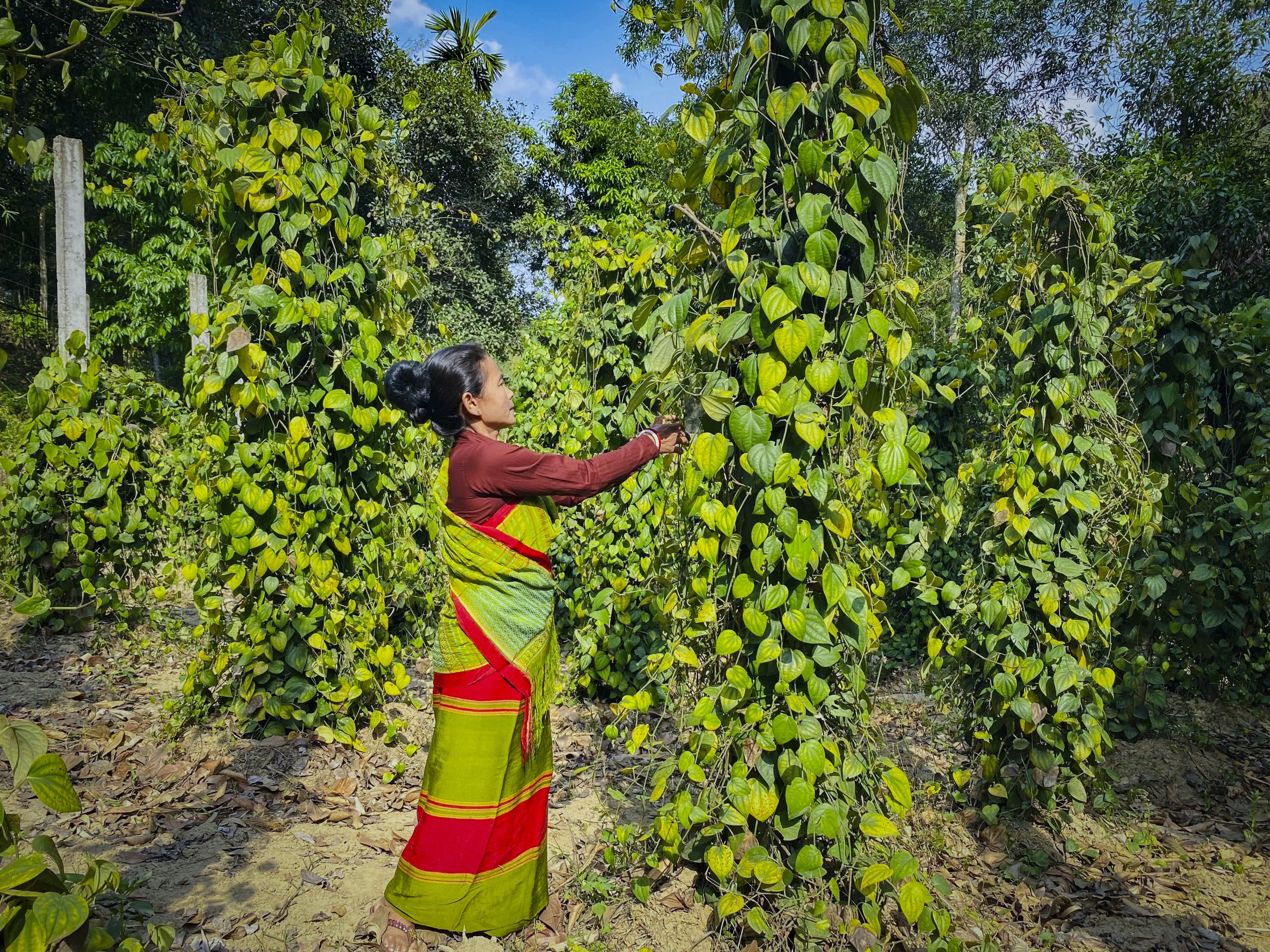
Promoting Agricultural Commercialization and Enterprises (PACE)
PKSF launched Promoting Agricultural Commercialization and Enterprises (PACE) project in January 2015. The project is jointly financed by PKSF and International Fund for Agricultural Development. The Financing Agreement of the project was signed between the People’s Republic of Bangladesh and International Fund for Agricultural Development (IFAD) on 11 December 2014. Subsequently, PKSF signed Subsidiary Loan and Grant Agreement (SLGA) with the Ministry of Finance, Government of Bangladesh on 18 January 2015 to implement the project.
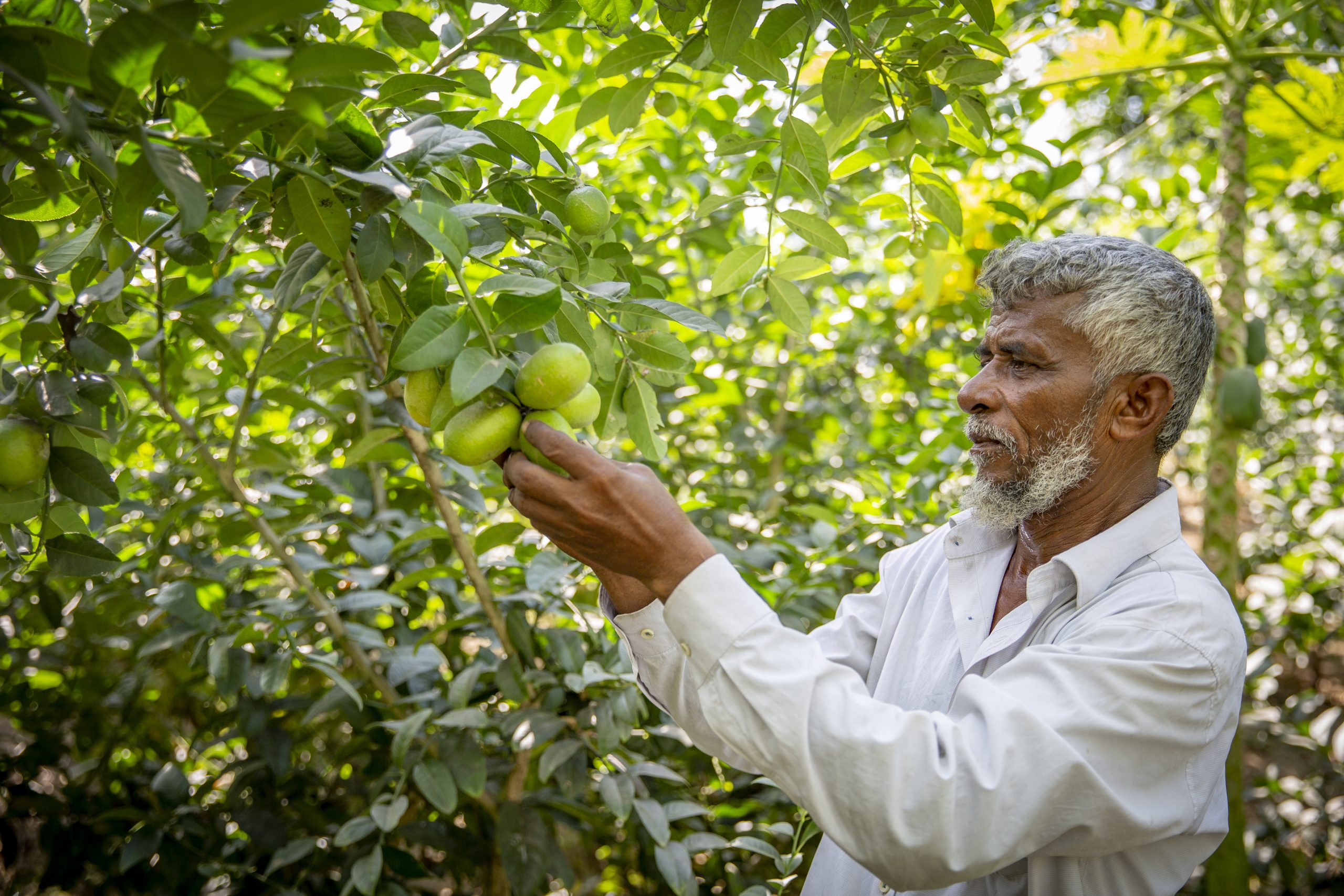
Rural Microenterprise Transformation Project (RMTP)
Palli Karma-Sahayak Foundation (PKSF) has started implementing a new project titled “Rural Microenterprise Transformation Project (RMTP)” financed by the International Fund for Agricultural Development (IFAD). Prior to the RMTP, PKSF undertook four projects with the financial support of IFAD — Microfinance and Technical Support Project (MFTSP), Microfinance for Marginal and Small Farmers Project (MFMSFP), Finance for Enterprise Development and Employment Creation (FEDEC) and the ongoing Promoting Agricultural Commercialization and Enterprises (PACE) project.
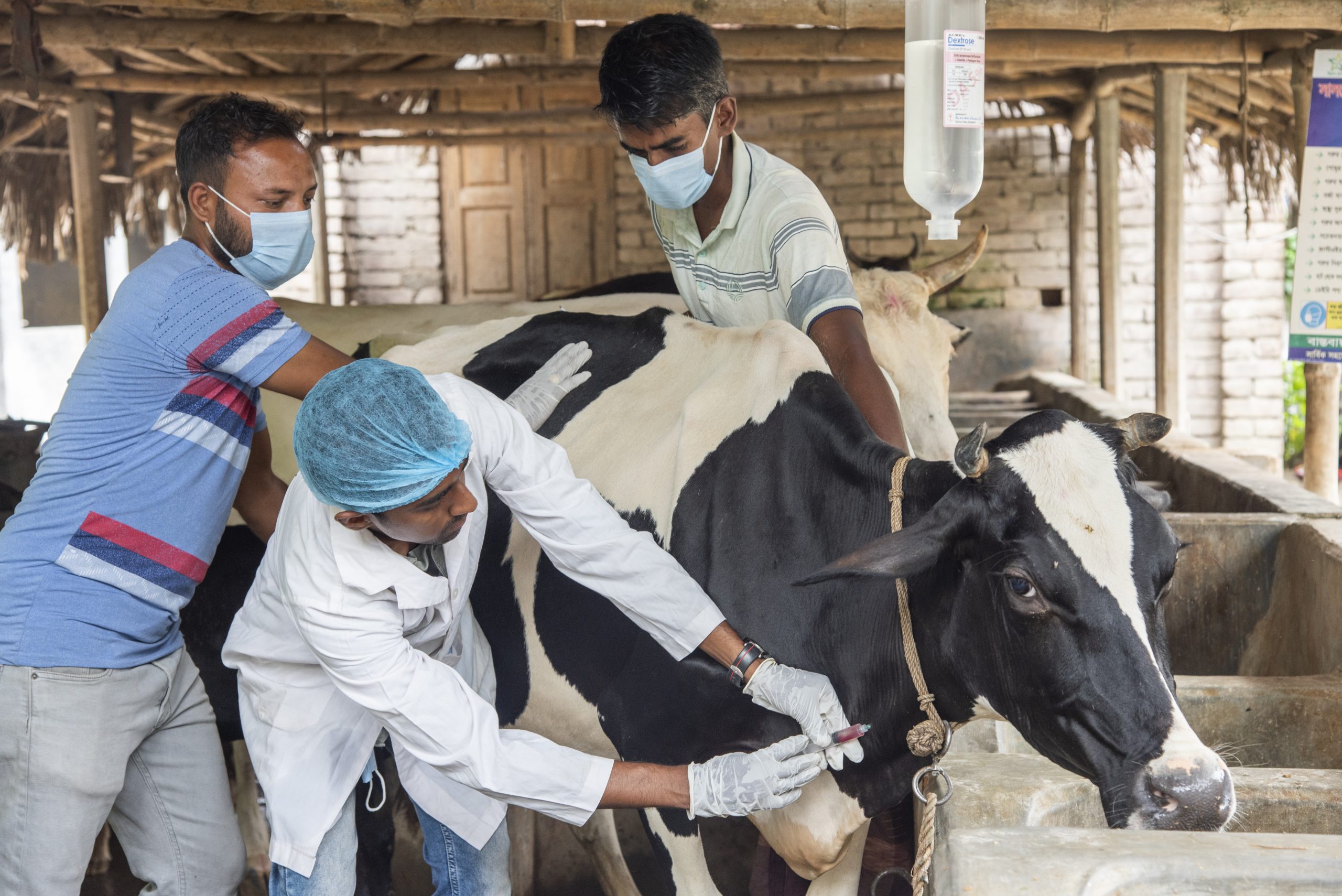
Strengthening Resilience of Livestock Farmers Through Risk Reducing Services
A project titled ‘Strengthening Resilience of Livestock Farmers through Risk Reducing Services’, funded by the Swiss Agency for Development and Cooperation (SDC), is being implemented by Palli Karma-Sahayak Foundation (PKSF).The project aims to improve capacity and knowledge of livestock farmers on good farming practices through training, vaccination camp etc to reduce morbidity and mortality risks of livestock, and to encourage farmers to invest more in livestock rearing. It will also work to improve the capacity of different stakeholders on risk mitigation services for the livestock sector in the country.
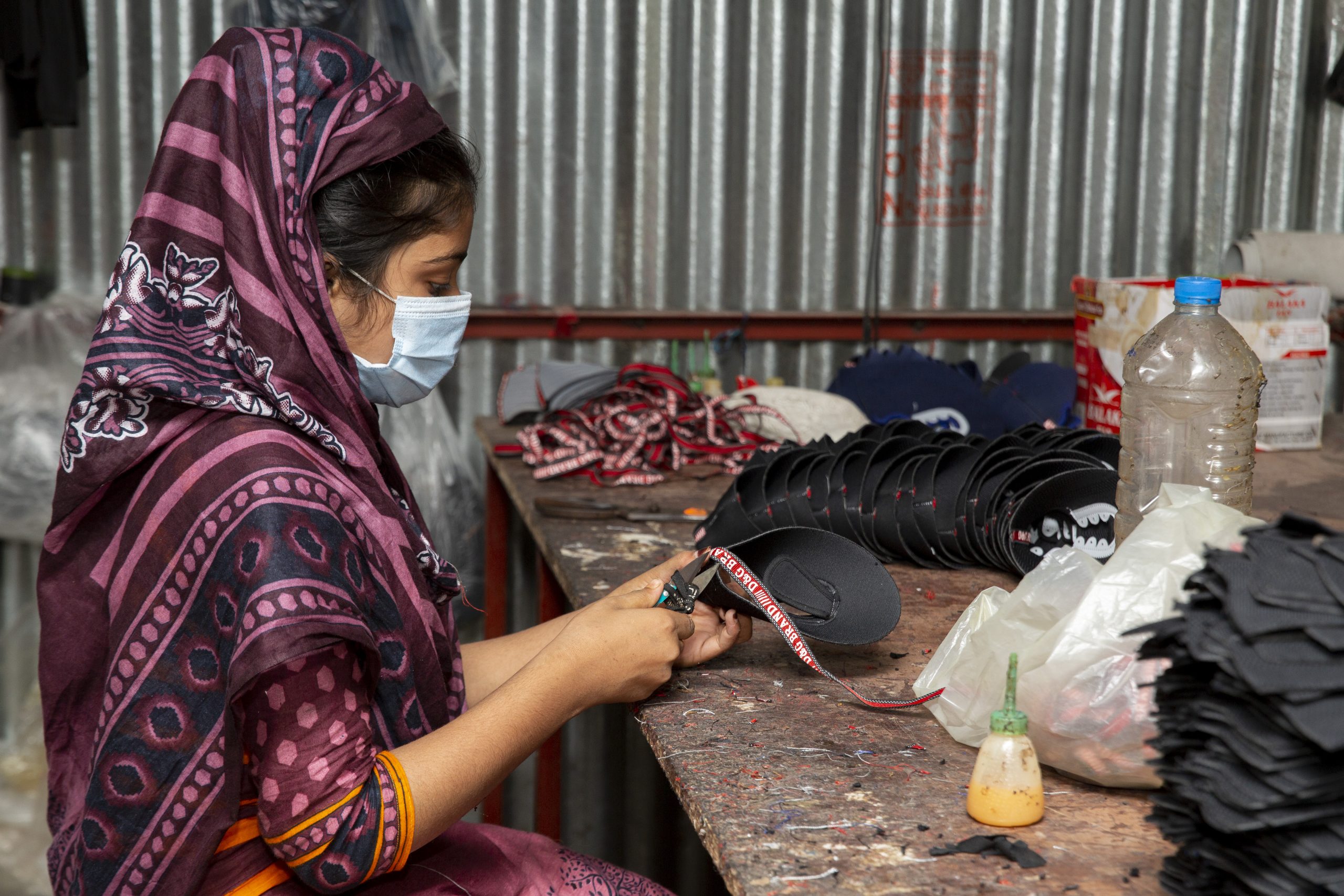
Sustainable Enterprise Project (SEP)
PKSF’s Sustainable Enterprise Project (SEP), financed by the World Bank, provides assistance to micro-enterprises (MEs) of Bangladesh to increase adoption of environment-friendly technologies and enhance their marketing and brand development capacity. Of the $130 million (BDT 1040 crore) budget of the project, the World Bank’s contribution is $110 million and PKSF’s is $20 million.The 5-year project (2018-2023) will support 40,000 microenterprises in agriculture and manufacturing sectors with special focus on environmentally stressed and vulnerable to climate change areas. Thirty sub-sectors have been identified for this project’s interventions. A Project Management Unit (PMU) has been formed at PKSF to administer the project.
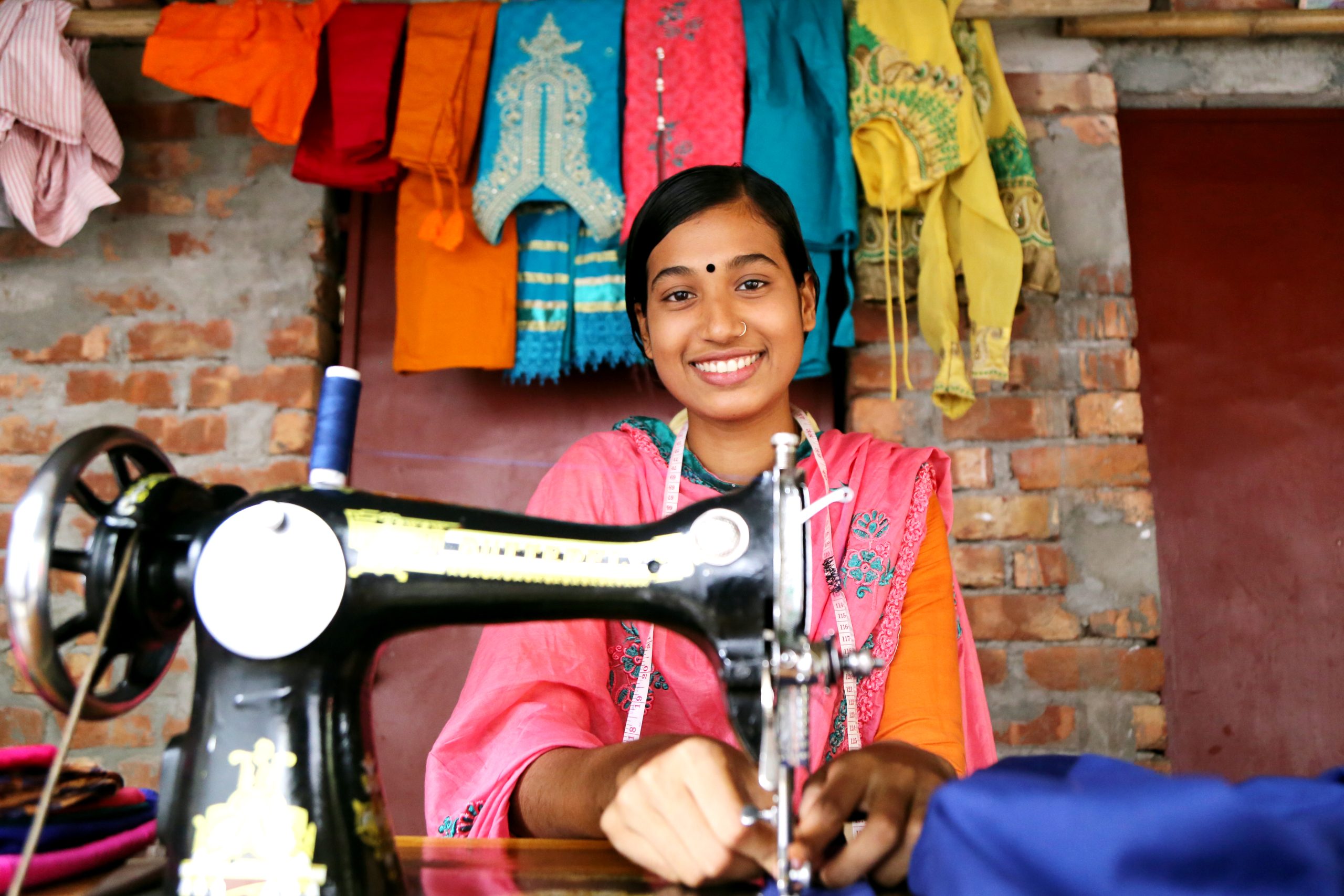
Skills for Employment Investment Program (SEIP)
PKSF has agreed to implement the ‘Skills for Employment Investment Program (SEIP)’ project and signed the MoU with the Finance Division, Ministry of Finance, Government of Bangladesh (GoB) on 7 May 2015 for Tranche-1; 26 May 2018 for Tranche-2; and 24 December 2020 for Tranche-3 to ensure training and employment for the disadvantaged people of the country so that they can develop their living standards sustainably. Under the SEIP project, PKSF is ensuring demand-driven skill-development training among disadvantaged people in order to create productive wage and self employment.
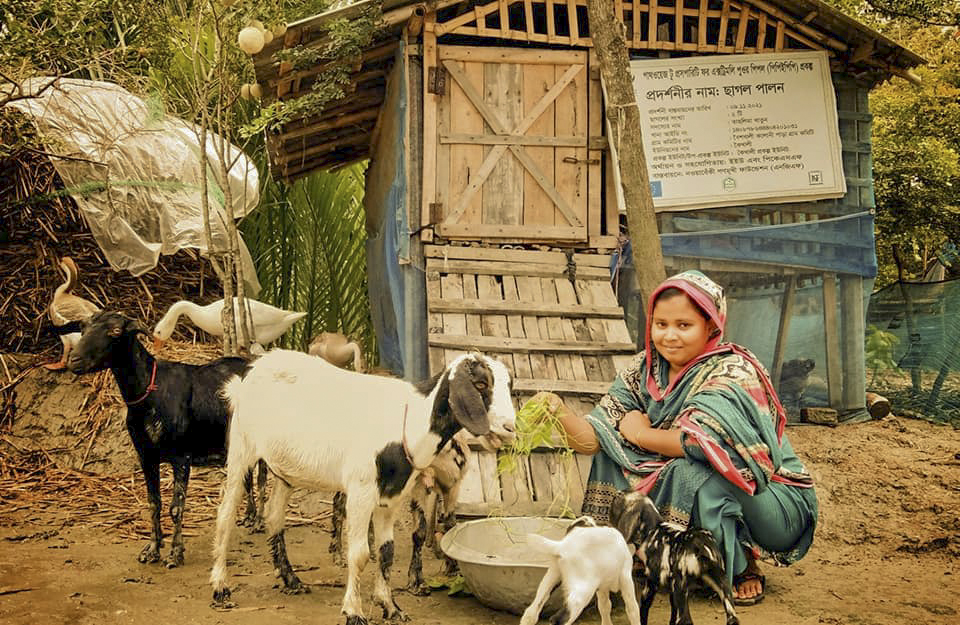
Ujjibito
Funded by the European Union, the ‘Food Security 2012 Bangladesh-Ujjibito’ project was jointly implemented by Palli Karma-Sahayak Foundation (PKSF) and Local Government Engineering Department (LGED) from November 2013 to April 2019. It had two basic components: 1) cash for work, and 2) skills and capacity development as well as awareness raising activities for the extreme poor. LGED implemented Component 1 styled as ‘Rural Employment and Road Maintenance Programme-2 (RERMP-2), while PKSF realized Component 2 titled ‘Ultra Poor Program (UPP)-Ujjibito’. The UPP-Ujjibito has been implemented in 1,724 Unions of Bangladesh through 36 POs. The working areas include all unions of Barisal, Khulna and Rajshahi divisions, and the coastal Unions of Lakshmipur, Noakhali, Chattogram and Cox’s Bazar districts of Chattogram division. The project focused on reduction of hunger and poverty in Bangladesh in a sustainable manner.
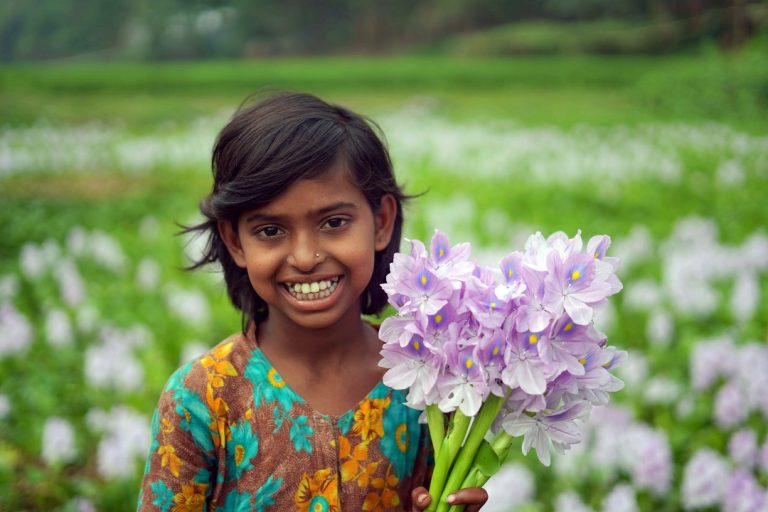
Pathways to Prosperity for Extremely Poor People (PPEPP) Project
The UN-sponsored Sustainable Development Goals (SDGs) are aimed at ending extreme poverty for all people everywhere by 2030 (Goal 1). The SDGs also aim to end hunger, achieve food security and improved nutrition and promote sustainable agriculture (Goal 2). Bangladesh, a signatory of this UN declaration, is playing its parts in achieving these global goals. Bangladesh has made remarkable progress in human development indicators. Poverty rate have also demonstrated an impressive steady improvement, falling by about 1.7 percentage points per year. Despite these achievements, the HIES 2016 estimate suggests that about 21 million people live in extreme poverty in Bangladesh and around three quarters of them are in rural areas.
